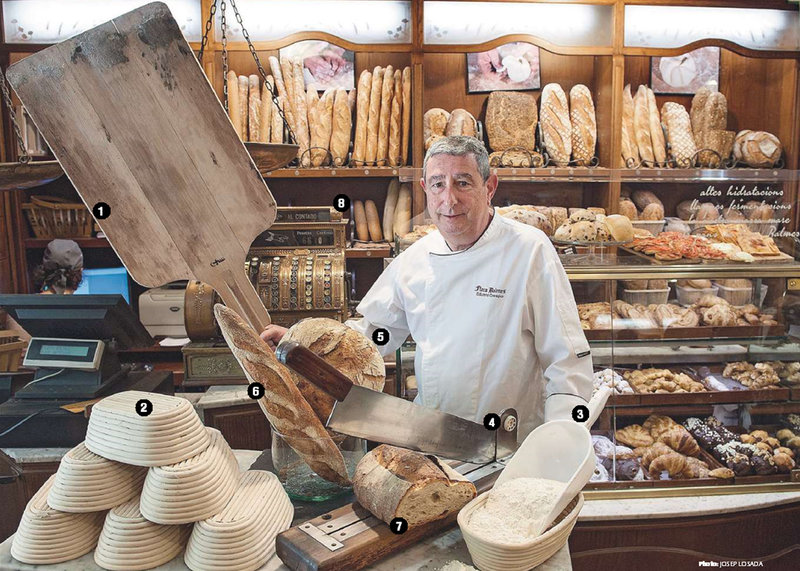Eduard Crespo
Fleca Balmes
In October 1908, Manuel Crespo and his wife Blasa set up the Fleca Balmes bakery, which we see featured in the image. In those days, the train line in Sarrià was still above ground. Very quickly, Manuel became known in the local neighbourhood as the “King of Ensaïmades”.
Today, the bakery is run by the founders' grandson, Eduard Crespo, who grew up among sacks of flour, ovens and freshly-baked loaves. However, it was not until 1972, with his obligatory military service behind him, that Eduard took over the bakery, after learning all the secrets of the trade from his father Manuel.
Over time, Eduard has developed new types of bread with different cereals and flavours that still nevertheless respect the basic rules of the trade he was taught, as well the level of quality established by his grandfather and father.
Fleca Balmes is considered one of Barcelona's best bakeries and has won a number of prizes and awards, including international recognition.
Eduard's daughter, Giorgina, helps him the shop and is the fourth generation in the family baking business. In many ways, things have not changed since 1908, as the baked products continue to be made with care and attention, using long fermentation. The bakery produces its own natural dough, which is newly-made every day to ensure lasting bread that is tasty, nicely-coloured, and with a great aroma.
1. Wooden peel with a long handle. The length of the handle depends on the depth of the oven. The end of the peel is thinner than the rest so it can be slid under the baked bread to remove it.
2. Fermentation baskets. Also known as bannetons in Catalan, they are used above all for natural doughs. They help the bread keep its shape during fermentation before it goes into the oven.
3. Flour scoop. This tool is used to manipulate the flour.
4. Bread slicer, or guillotine. Not so many years ago it was a tool to be found in every bakery. Today, a machine is used to slice loaves.
5. Farmhouse loaf (Pa rodó de pagès). The classic loaf seen in traditional Catalan cuisine and perfect for making tomato bread (pa amb tomàquet).
6. Loaf. These long loaves are made with flour milled with French stone, high hydration and long fermentation.
7. Spelt bread. This bread made from spelt, or dinkel wheat, is 100% organic.
8. Till. This has been part of the shop for over half a century. Today, it is only used as decoration.
flecabalmes.com

